PrAACtical Thoughts on Social Skills Training from the 2016 CARD Conference
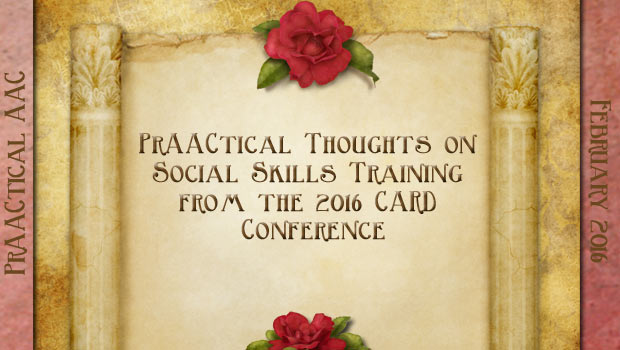
I had a wonderful time this past weekend connecting with colleagues and learning from ASD experts at the 2016 Center for Autism and Related Disabilities (CARD) Conference in Orlando. One of the keynotes, “From Building Social Relationships to Improved Quality of Life Outcomes for Youth on the Autism Spectrum: We Finally Know What We Already Knew,” was given by Dr. Scott Bellini. I also attended his talk on the Building Social Relationships program. Here are some of the take-aways from those two sessions.
Evidence Base
The evidence base for social skills training is variable. While his meta-analysis on school-based social skills training found that social skills interventions were minimally effective, there are several effective strategies that can be used in that and other settings. When evidence-based strategies, including video modeling and video self-modeling and social narratives, are used within the context of social skills training, the overall efficacy is much greater. The evidence base for social skills intervention is growing and the National Professional Development Center on Autism is currently creating a practice brief based on the available literature that fits the criteria for inclusion.
Social Skills Board Games
There are a plethora of board games for different age groups that address social situations with the intent of building skills that allow individuals with autism and related disabilities to interact appropriately at home, in school, at work, and in the community. You’ve probably seen some that pose a potential social scenario and require the players to come up with an appropriate response to that situation. For example, the scenario could include things like what to do if you have a question in class, someone accidentally bumps you, you want to be first in line, or you want to join peers in a conversation/activity. As someone who has done meta-analyses and other research on social skills training, Dr. Bellini knows the literature on this topic inside and out. I was eager to hear his take on these types of games.
He started this section with an important observation: Often, the students who have the poorest behavior actually do the best on these types of games. Why is that? Because knowing what you are supposed to do and being able to articulate that is a very different skill than actually being able to apply that knowledge in a real-world interaction. These types of games are usually not effective in changing behavior, even for highly verbal students who can provide the correct answer and explain their responses. While they can retrieve the answer (rote memory) and express it, these games generally don’t provide the skills needed to utilize the information (procedural memory). While these kinds of games may be a good means of reinforcing concepts about social skills, they aren’t an effective means of changing performance in daily life.
Social Skills Instruction
Dr. Bellini advocated for a systematic approach to social skills intervention, and discussed a program that he has authored and researched, The Building Social Relationships Program uses a 5-stage approach:
- Identify and assess areas of need;
- Determine whether the problem relates to skill acquisition or performance;
- Select appropriate intervention strategies, such as behavioral rehearsal, structured play with prompting, and video self-modeling;
- Implement those strategies; and
- Evaluate the intervention and adjust, as needed.
You can learn more about the specifics of the program in his book on this subject. In addition, you can access Dr. Bellini’s handout from this session here to learn more about the strategies used in this approach and the structure for the intervention sessions. Please note that this handout is available only for a short time.
Many thanks to the amazing team at UCF CARD for putting together this wonderful conference. Hope to see some of you at the 2017 event in Orlando next January!
Filed under: PrAACtical Thinking
This post was written by Carole Zangari

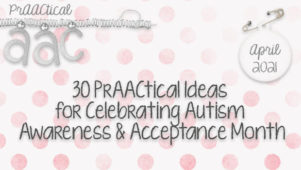
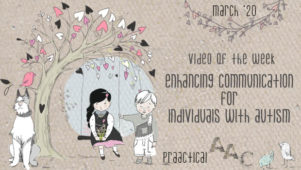
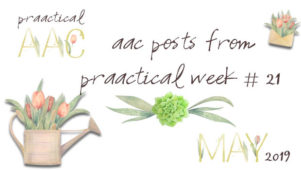
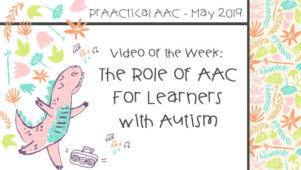
3 Comments
Thanks Carole. It’s so kind of you to share this with those who couldn’t be there 🙂 I really appreciate it – and I’m sure many others do too!
My pleasure, Jane. It helps me justify being a conference nerd. (I’m still the girl who sits close to the front and furiously scribbles notes.) Glad that my nerdiness can benefit others. 🙂
Another issue with social skills training that I’ve seen is that sometimes what an adult thinks is socially appropriate and what the child’s peers think is appropriate are not the same. Growing up as a high functioning autistic kid, most adults saw me as well-behaved and reasonably socially skilled – and yet I had no friends and was being bullied. The fact is that I knew how to charm adults, but I had no clue how to get along with other kids. Adult-led social skills training would have been unlikely to help me, because those adults didn’t understand how kids in my generation actually acted.